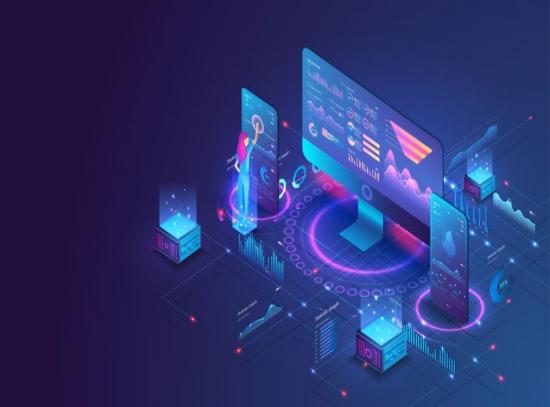Cloud computing is trending. Companies big and small are using cloud-based digital products for everything from sales and logistics to inventory management and daily business activity. Cloud computing services can offer high-quality solutions at…
Digital transformation starts with a comprehensive assessment of your IT architectures. An IT infrastructure assessment reviews and analyzes the effectiveness of your current technology systems. It is the beginning of a critical process toward the…
In 2020, COVID-19 pummeled infrastructure and operations (I&O) as organizations shifted their workforce to remote arrangements to accommodate shelter-in-place strategies. The latest data tells us that our workforce will continue operating…
Enterprise organizations were slow to evolve to cloud technology from their legacy platforms and on-premise server rooms. But in the past five years, they’ve worked hard to catch up to the rest of the world, even if their efforts only encompassed…
It’s a safe assumption that most business continuity plans didn’t extend to the idea of a global pandemic. For the sheer scope of business impact, COVID-19 is like nothing we’ve ever seen before. This event has redefined how the c-suite must…
There is a clear designation between “before COVID” and post-pandemic. It’s a fundamental schism defining how we live and work in our new socially distant society. The implications are still being determined, but one thing is clear: there is a new…
From edge computing to artificial intelligence (AI), changes to our digital infrastructures are constant. Far from being in a back office server room, today’s operational infrastructures are everywhere — edge locations, in the cloud, collocated,…
A distributed cloud-connected architecture allocates IT assets across multiple redundant systems encompassing on-premise, cloud, and everything in-between. There are many benefits to not putting all your IT eggs in one basket, but there also are…
Digital transformation has changed more than our processes and products; it’s changed the job descriptions of everyone from front line personnel to the c-suite. Enterprise chief executive officers (CEOs), for example, have evolved beyond managing to…
Digital transformation has certainly been a source of disruption among technology leaders — and that’s not expected to change any time soon. Digital technology will continue to heavily impact organizations throughout the next decade, but it is the…
Many enterprise organizations are leveraging robotics process automation (RPA) to automate workflows, reduce costs, and improve worker efficiency. Automation is controversial; even the idea of automation can cause anxiety among employees who worry…
Advances in digital technology have shaped the way many industries conduct business and interact with their customers — and healthcare is no different. The healthcare industry is undergoing a digital transformation, but it is by no means complete.…
More than a decade after the cloud became a stable figurehead in the IT universe, enterprise organizations finally embraced the model. Today, most large-scale organizations have adopted hybrid and multi-cloud models to modernize their remaining on-…
80% of all enterprise workloads will be in the cloud by 2025, according to Oracle. Enterprise organizations are increasingly establishing hybrid IT models to maximize their existing in-house equipment while using the cloud to stay more agile and…
Enterprise organizations are increasingly seeking hybrid IT models that incorporate both in-house technology resources and cloud-based services. It’s the opposite of the risk-laden “eggs in one basket” approach. The hybrid cloud market is expected…
Quantum computing is (almost) here. In October, Google’s quantum computing lab took just minutes to solve a math problem that would have taken 10 millennia for a supercomputer. Or, at least that’s what they reported. In rebuttal, IBM publicly…
There will come a time when machine learning algorithms normalize within the developer stack. Today, machine learning is a growing specialization in computer science. Like the application program interface (API) layer, the science inherent in…
Containerization is about to get an upgrade. Although the idea of running deployments in the protected environments found in Docker, Kubernetes, or Amazon’s Elastic Container Service (ECS) is attractive, in practice, there have been a few…
Adopting agility into stodgy enterprise technology infrastructures is the new imperative for CIOs. The push is to change best practices, product delivery, and the overall end-user experience to better model many of the startup organizations that…
It’s no secret that IT has moved beyond just keeping the lights on. Today’s IT infrastructures require more than budget management and cost allocation. CIOs now need a transparent framework for managing multiyear projects aimed at digital…
IT service management (ITSM) firms work to employ a set of best practices to efficiently manage technology architectures. The cloud became a huge disruptor for ITSM by virtualizing the large physical data center into architectures infinitely more…
“Mainframe” doesn’t make many headlines these days. This could be because mainframes are a relatively “traditional” way of hosting large IT infrastructure and data processing. Another reason might be that innovations in the space are starting to…
Costs are almost always top of mind when an enterprise considers new technology. This approach is sensible for most sourcing strategies. But when it comes to Infrastructure as a Service (IaaS), it’s also important to consider the technology’s…
You’ve probably seen the whole gamut of “as a Service” models in industry publications, here on LinkedIn, and at major conferences. These cloud-driven as a Service models are changing the face of enterprise IT. Instead of spending more and more…
The great migration has begun; the speed of cloud deployments is only picking up. The public cloud services market will end 2018 21% higher than last year. A decade after the internet stabilized, early adopters have grown comfortable while CIOs in…
According to the 2015 Momentum® Market Trends & Insights® Report, the annual contract value (ACV) for outsourcing engagements within the utility industry jumped 24 percent since 2014, outpacing the next closest industry by more than double. For…
Today’s IT leaders can no longer afford to be stagnant or complacent; they must constantly seek out new ways to drive innovation, improve digital capabilities, and do so while becoming more efficient and productive than ever before. The traditional…
The increasing complexity of new technologies has led to a need for rapid transformation among modern enterprises. As the need to do more with less continues to become more prominent, today’s CIOs have been challenged with better aligning IT with…













